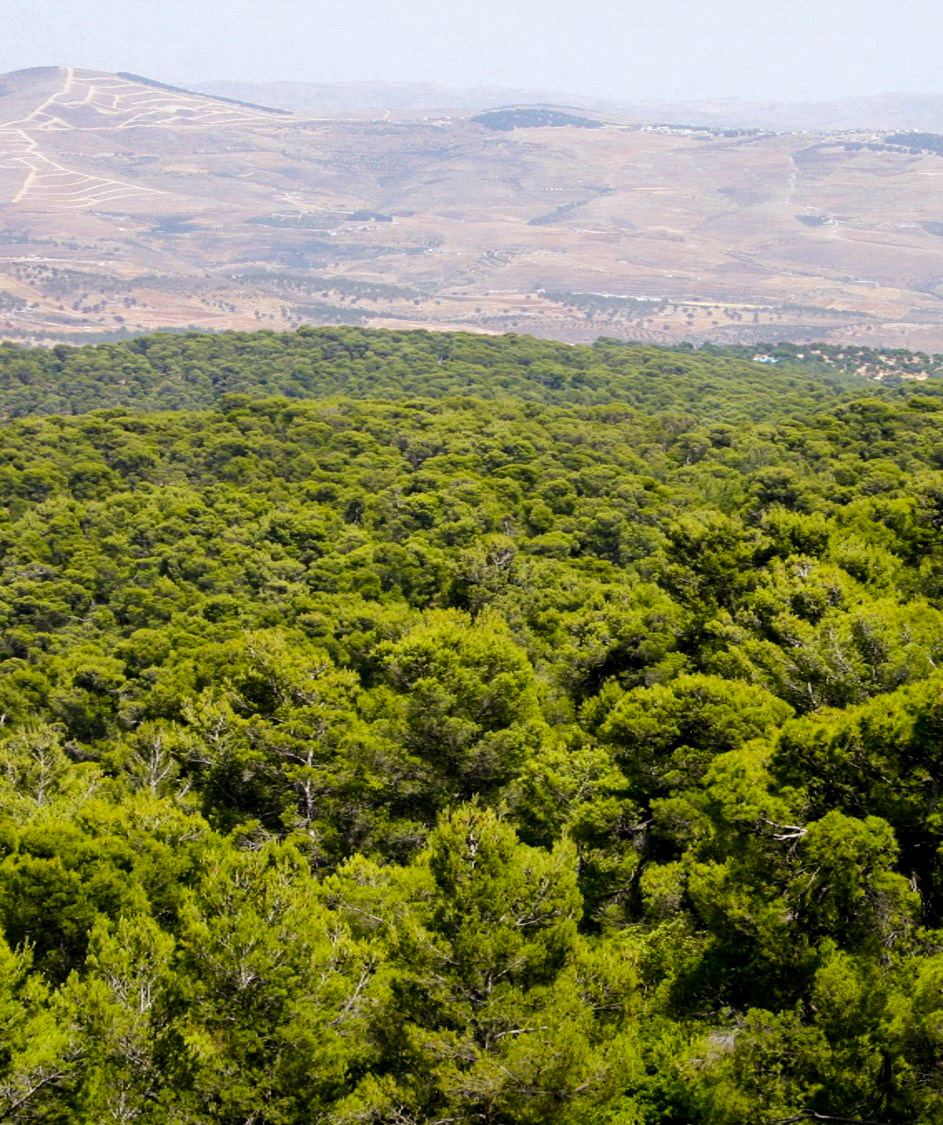Egyptian COP27 Presidency, Germany and IUCN announce ENACT Initiative for Nature-based Solutions
Sharm el-Sheikh, Egypt, 16 November 2022 (IUCN) - The ENACT initiative, which will coordinate global efforts to address climate change, land and ecosystem degradation, and biodiversity loss through Nature-based Solutions (NbS), was launched today as part of the COP Presidency's official programme. The initiative will also produce an annual State of Nature-based Solutions report to update COP28 and subsequent meetings on progress in implementing NbS commitments.
Recognising the need for a more integrated global approach to Nature-based Solutions, the Egyptian COP27 Presidency, the Government of Germany and the International Union for Conservation of Nature (IUCN) developed the ENACT (Enhancing Nature-based Solutions for an Accelerated Climate Transformation) initiative to bring coherence to and strengthen collaboration between existing NbS efforts and partnerships. ENACT is a voluntary coalition of state and non-state actors, co-chaired by Egypt and Germany. IUCN will host the ENACT Secretariat, which will lead the implementation of the initiative.
"Nature-based solutions are making significant contributions to efforts to address climate change, but their huge potential is still largely untapped. Egypt is championing the ENACT initiative as it will boost integrated, well-coordinated Nature-based Solutions on a global scale, in line with the scale and urgency of the climate crisis," said Yasmine Fouad, Minister of Environment of the Arab Republic of Egypt and COP27 Climate Envoy.
"Nature is our most powerful ally in combating the climate and biodiversity crises. Intact ecosystems store carbon dioxide, secure our food and water supplies and protect against disasters. Nature-based Solutions can create jobs and contribute to economic and social development. But to achieve this, they need to be supported by effective safeguards and standards. This is something we pay close attention to in both our international and national projects," said Steffi Lemke, German Federal Environment Minister.
As a key outcome of ENACT, the secretariat will compile an annual State of Nature-based Solutions report, to be delivered to the COP Presidencies ahead of future UN Climate Change gatherings. The report will provide the most comprehensive quantitative overview of global progress in implementing NbS commitments by both state and non-state actors.
"This COP has reinforced that the time for climate action is now, and Nature-based Solutions have a key role to play. They must deliver high-integrity outcomes, consistent with robust environmental and social safeguards. It is time to bring together Parties and Nature-based Solutions experts around the world to accelerate meaningful integrated climate-biodiversity action. I look forward to learning more about ENACT’s progress through the State of Nature-based Solutions Report that will be shared at COP28 in the UAE," said Razan Al Mubarak, IUCN President.
"While there is growing recognition of the potential of Nature-based Solutions for climate change mitigation and adaptation, global efforts across sectors have been largely disconnected. The ENACT partnership will strengthen coordination, ensure high-integrity NbS actions that follow ecological and social safeguards, and, crucially, quantify and track progress,” said Dr Bruno Oberle, IUCN Director General.
The ENACT initiative aims to:
- Enhance the protection from and resilience to climate impacts of at least 1 billion vulnerable people, including at least 500 million women and girls.
- Secure up to 2.4 billion hectares of healthy natural and sustainable agricultural ecosystems, through protection of 45 million ha, sustainable management of 2 billion ha, and restoration of 350 million ha.
- Significantly increase global mitigation efforts through protecting, conserving and restoring carbon-rich terrestrial, freshwater and marine ecosystems.
Seven areas of focus have been identified to structure the work of ENACT: (1) food security and land productivity; (2) adaptation & disaster risk reduction; (3) oceans and sustainable blue economy; (4) urban resilience; (5) green-grey infrastructure; (6) NbS in national and subnational mitigation strategies; (6) mobilising private investment in NbS; and (7) health, climate and NbS.
Notes to editors
For more information or to set up interviews, please contact:
IUCN Press relations – Goska Bonnaveira, +41 79 276 0185, press@iucn.org



